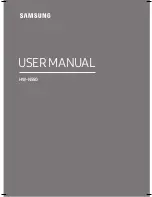
3
En
TABLE OF CONTENTS
PRECAUTIONS .................................... 2
PREPARATIONS ................................... 4
PARTS AND CONTROLS ......................... 5
ADJUSTMENTS BEFORE OPERATIONS ........ 8
CD OPERATIONS ................................ 10
RADIO OPERATIONS ........................... 12
TAPE OPERATIONS ............................. 14
SOUND ADJUSTMENTS ........................ 17
TIMER OPERATIONS ........................... 18
REFERENCE ..................................... 20
System and accessories
NSX-AJ700
CX-NAJ700 Compact disc stereo cassette receiver
SX-NAJ702 Front speakers
Remote control
FM antenna
AM antenna
OWNER'S RECORD
Record the model number and serial number of your set
(found at the rear of your set) below. Refer to them when
contacting your Aiwa dealer.
Model No. _____________________________
Serial No. _____________________________
Outdoor Antenna
1 Power lines
— When connecting an outdoor antenna, make
sure it is located away from power lines.
2 Outdoor antenna grounding
— Be sure the antenna system
is properly grounded to provide protection against unexpected
voltage surges or static electricity build-up. Article 810 of the
National Electrical Code, ANSI/NFPA 70, provides information
on proper grounding of the mast, supporting structure, and
the lead-in wire to the antenna discharge unit, as well as the
size of the grounding unit, connection to grounding terminals,
and requirements for grounding terminals themselves.
Antenna Grounding According
to the National Electrical Code
GROUND CLAMP
GROUND CLAMPS
ANTENNA
DISCHARGE
UNIT
(NEC SECTION
810-20)
GROUNDING
CONDUCTORS
(NEC SECTION
810-21)
ELECTRIC
SERVICE
EQUIPMENT
ANTENNA
LEAD IN
WIRE
POWER SERVICE
GROUNDING
ELECTRODE SYSTEM
(NEC ART 250 PART H)
NEC-NATIONAL ELECTRICAL CODE
Maintenance
Clean the unit only as recommended in the Operating
Instructions.
Damage Requiring Service
Have the units serviced by a qualified service technician if:
- The AC power cord or plug has been damaged
- Foreign objects or liquid have gotten inside the unit
- The unit has been exposed to rain or water
- The unit does not seem to operate normally
- The unit exhibits a marked change in performance
- The unit has been dropped, or the cabinet has been damaged
DO NOT ATTEMPT TO SERVICE THE UNIT YOURSELF.




































